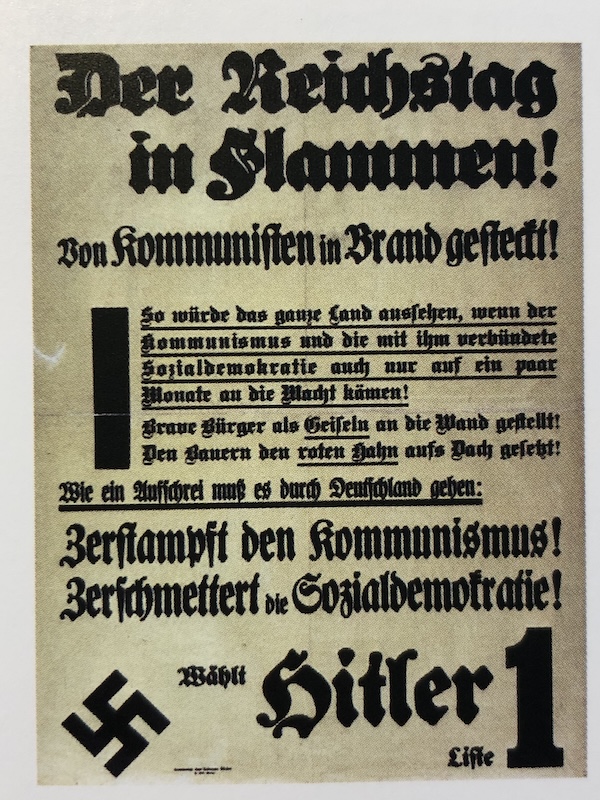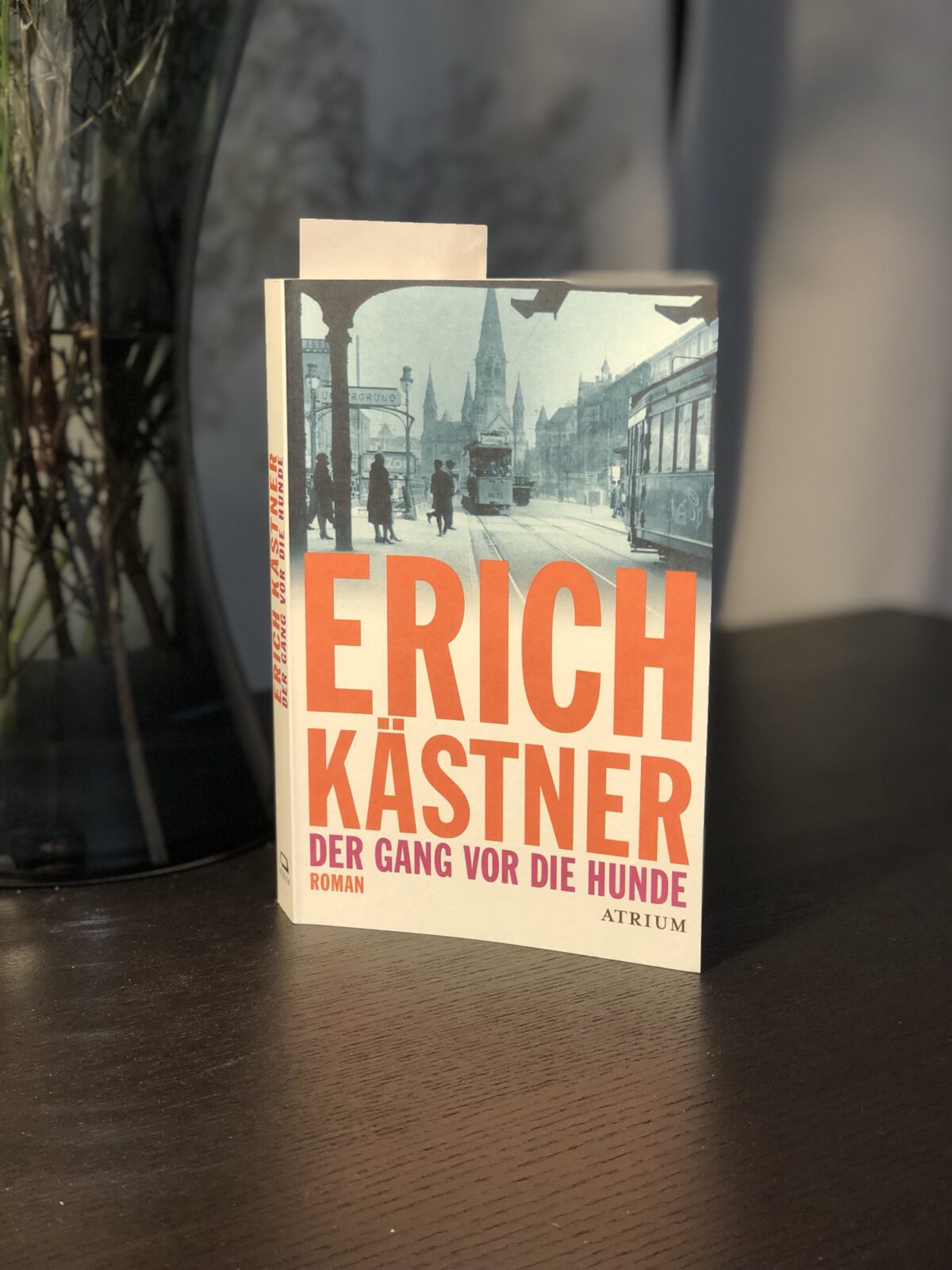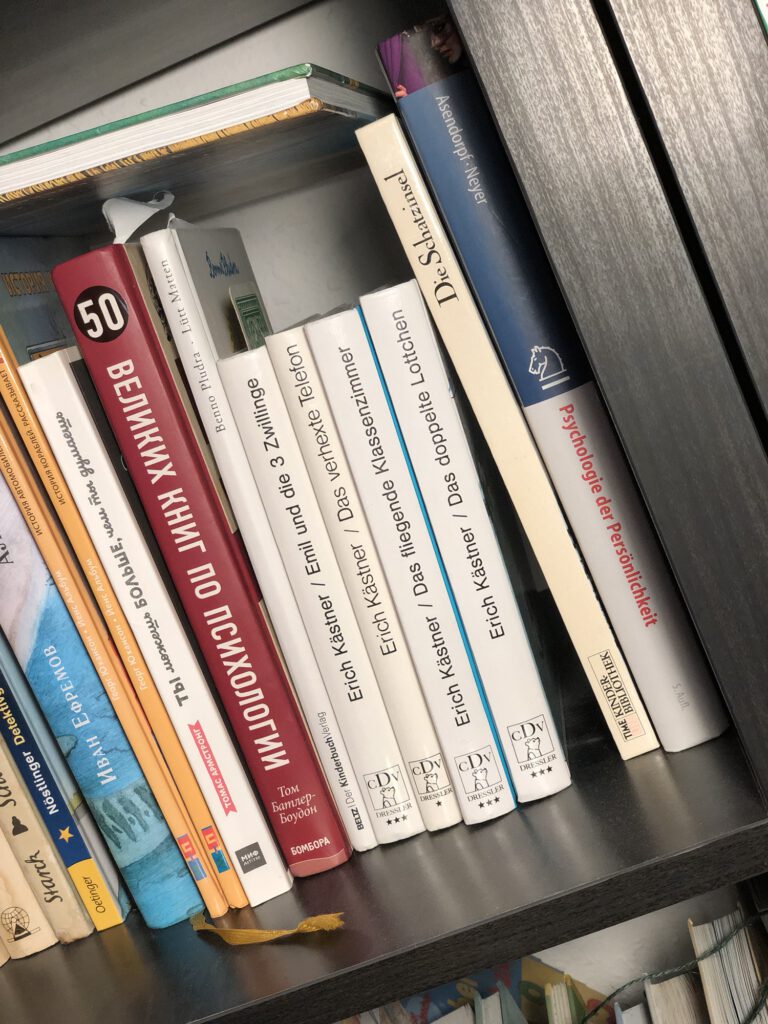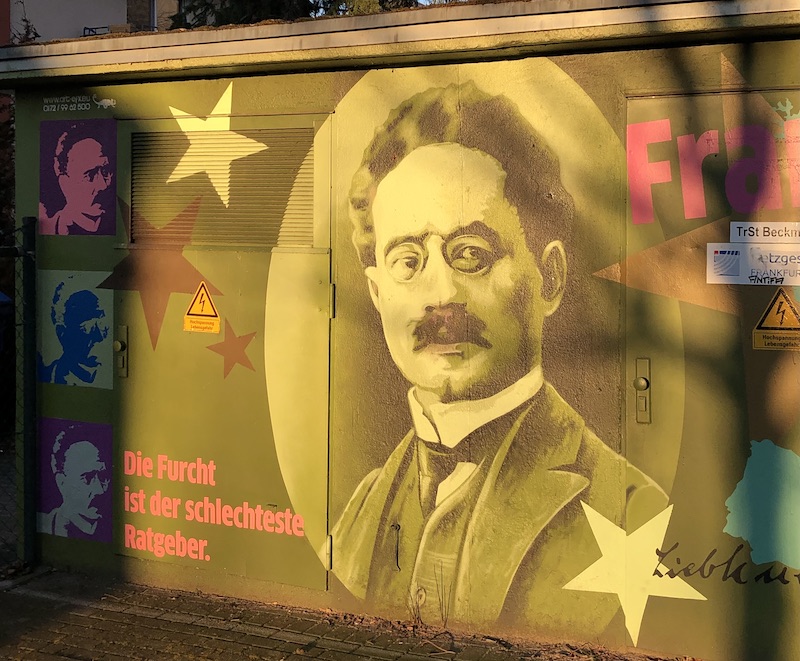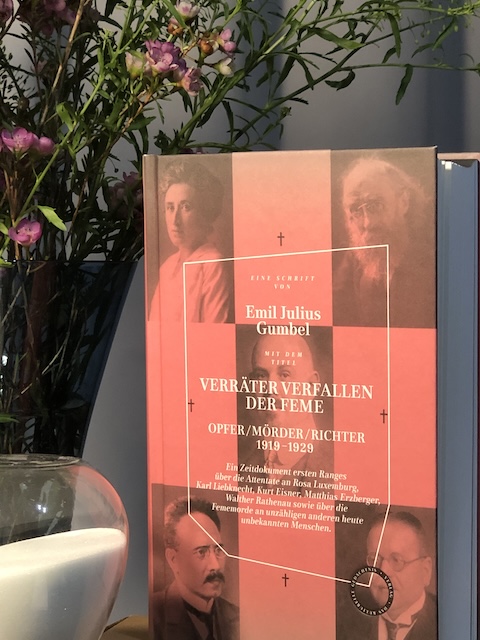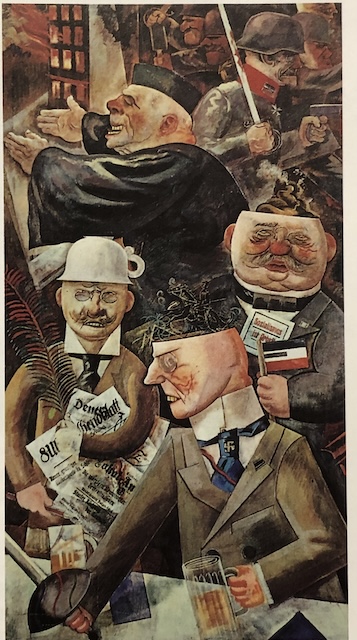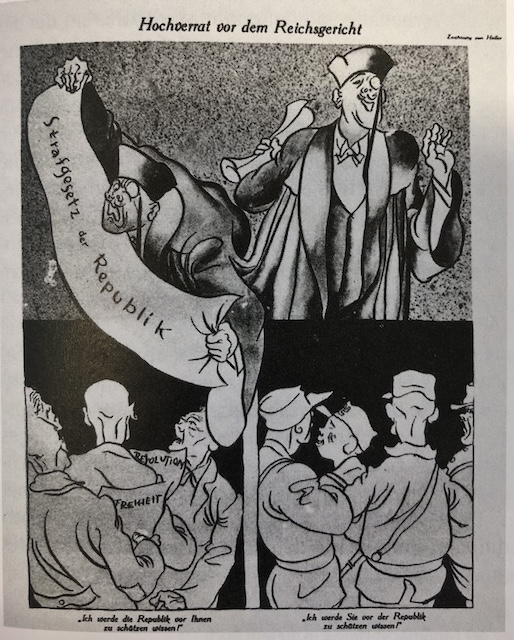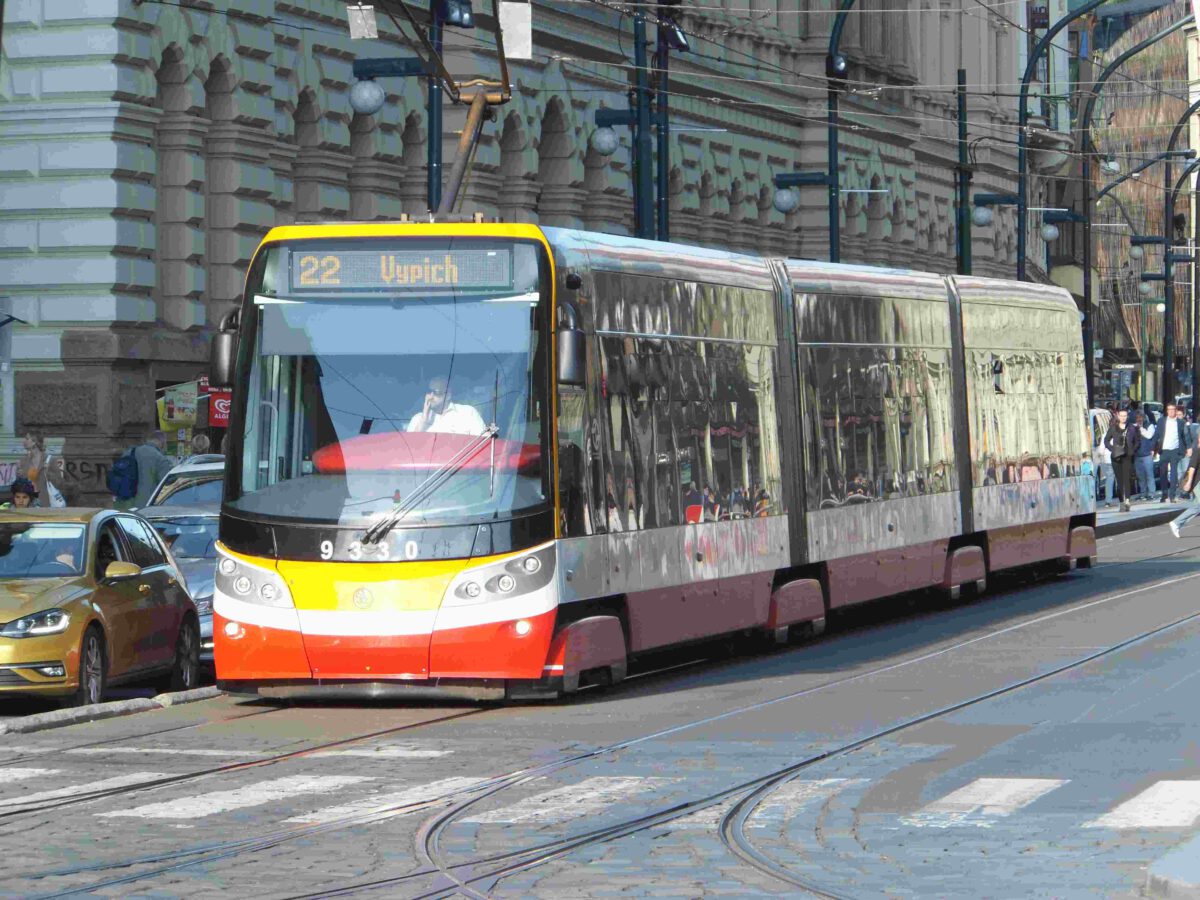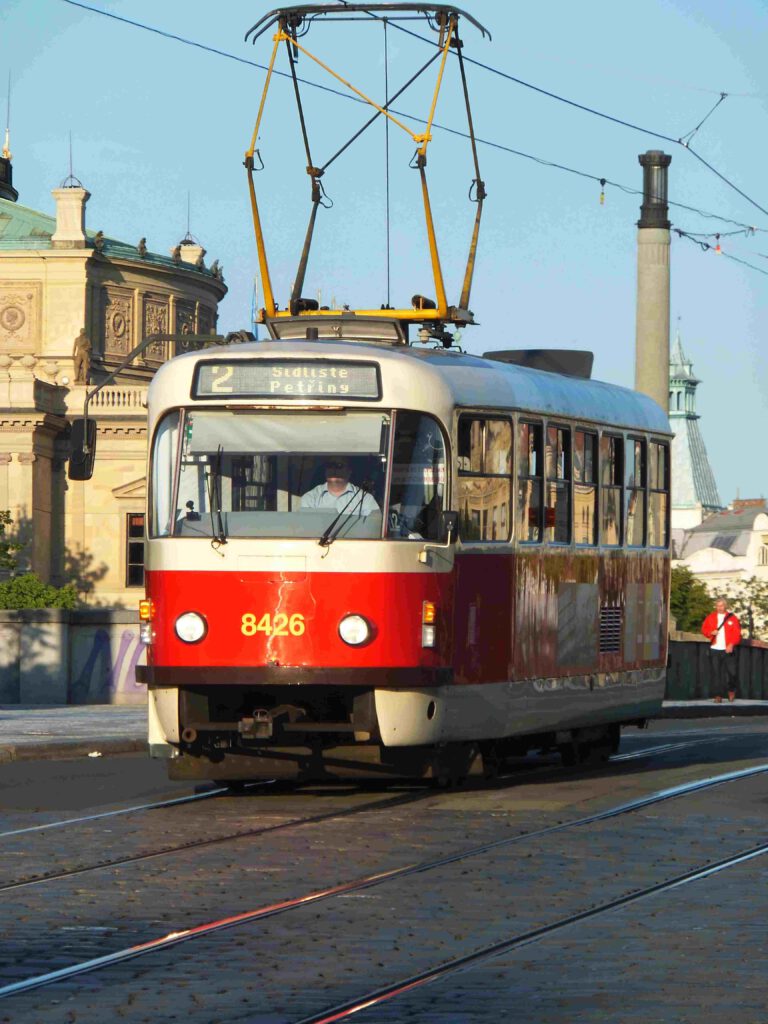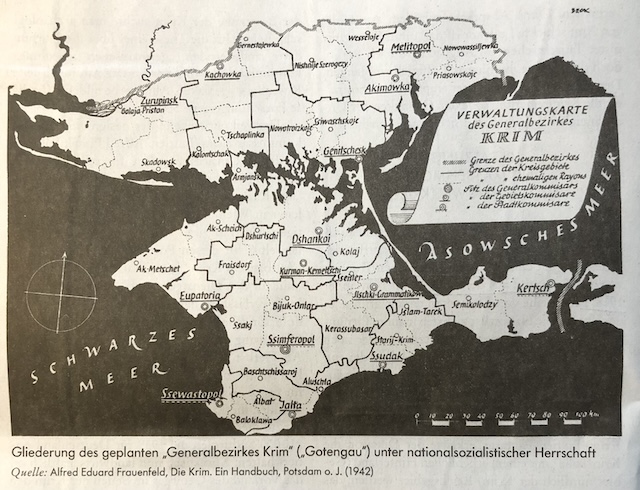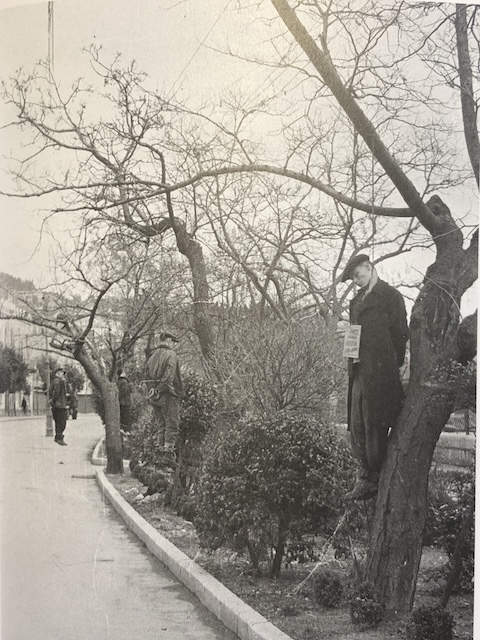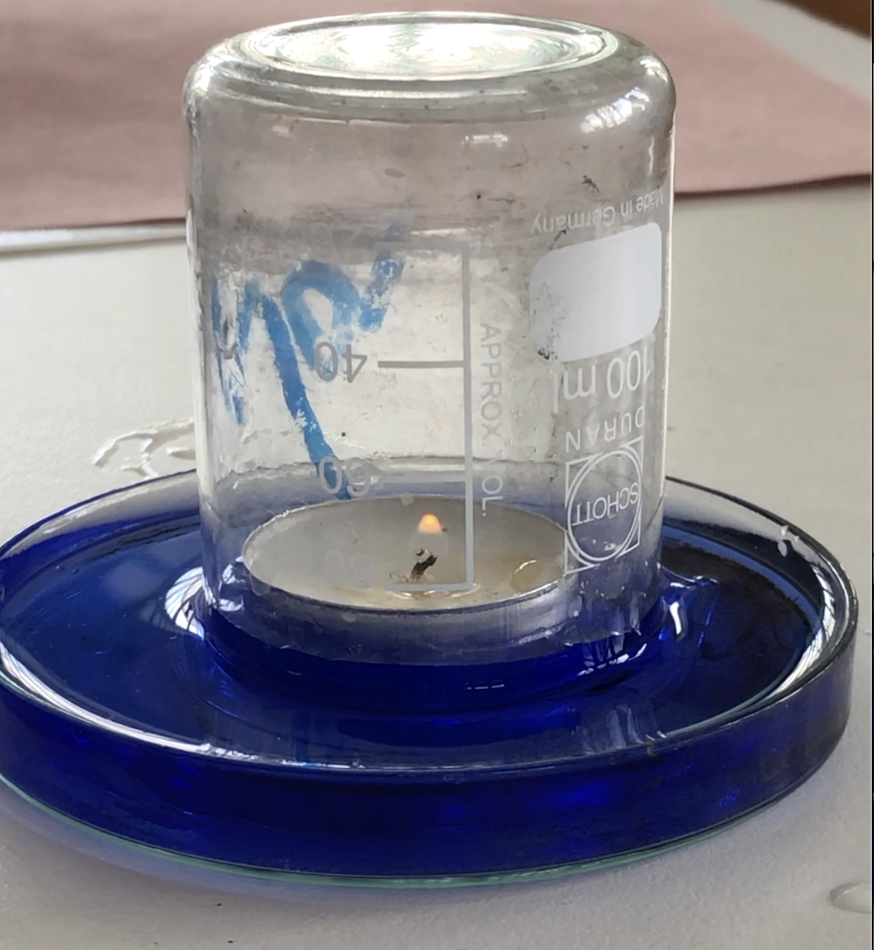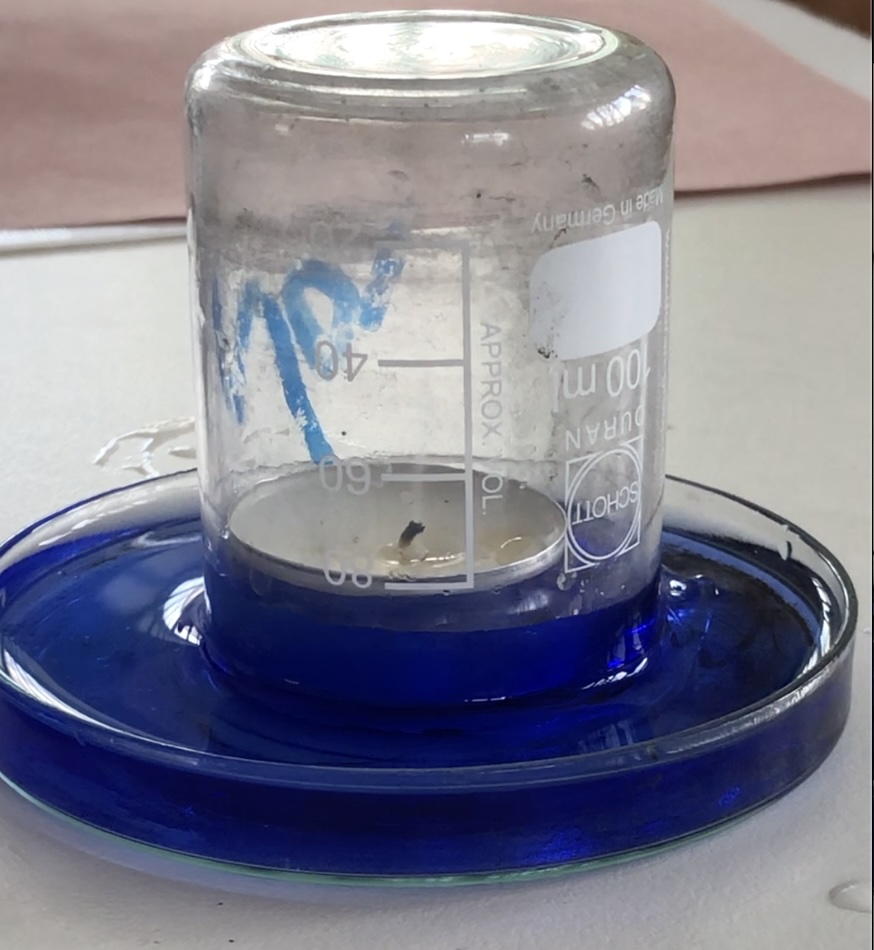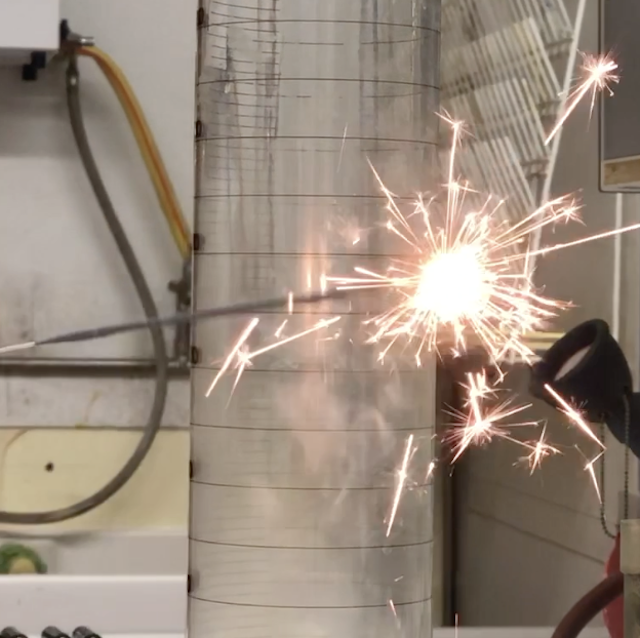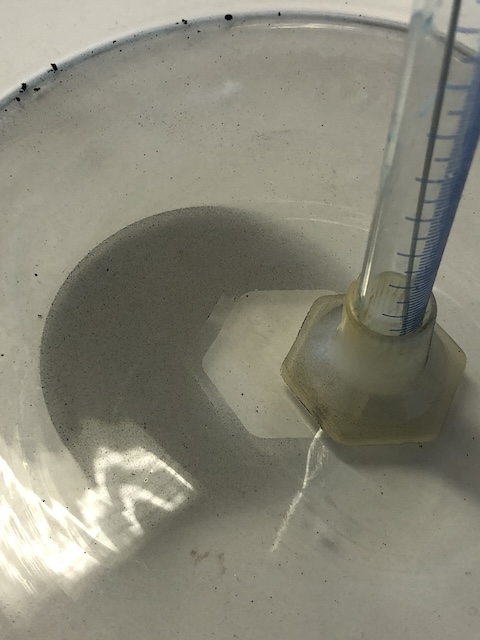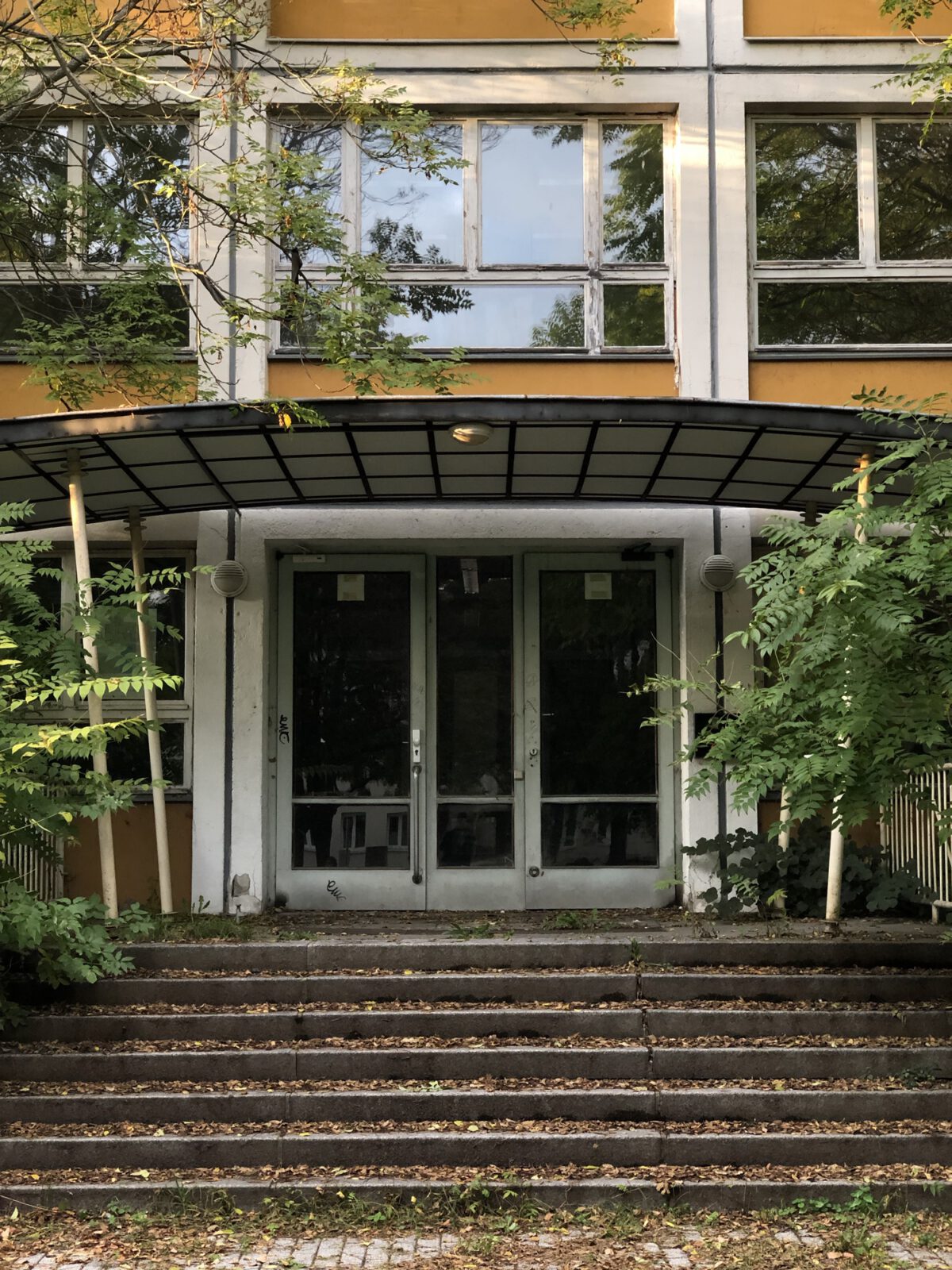Nicht weit von unserem MINT-Gymnasium in Frankfurt an der Oder kochen und walzen große Töpfe und Maschinen im EKO Eisenhüttenstadt Eisen und Stahl. Der große Topf – der das angelieferte Eisenerz einschmilzt – läuft 24/7; 24 Stunden am Tag, 7 Tage die Woche, 366 Tage im Jahr. Die großen Töpfe – das sind die Hochöfen. Der Hochofen darf nie stehen bleiben, sonst wäre alles verloren. Aus Eisenerz gewinnt er Roheisen. Dem Roheisen werden noch weitere Metalle beigefügt, Chrom, Nickel, oder Mangan; hinzu kommt eine Prise Kohlenstoff – fertig ist die Legierung Stahl. Der Reinstoff wird flach gewalzt, kalt oder heiß, und transportiert in alle Regionen unseres Landes und darüber hinaus.
Ein großflächiges Gemälde am alten Lichtspieltheater der Jugend im Herzen Frankfurts (Oder) führt dieses angewandte Chemie jedem vor Augen. Sechs gewaltige Hochöfen (heute sind es noch drei) werden umrahmt von mächtigen Rohren. Lastkähnen auf dem Oderkanal versorgen das Werk mit dem Energieträger Kohle. Weiße Rauchschwaden der Rohre und Türme umkreisen die Friedenstauben. Über allem scheint und freut sich die Sonne. Idylle pur – nur einige Details trüben diese Idylle.
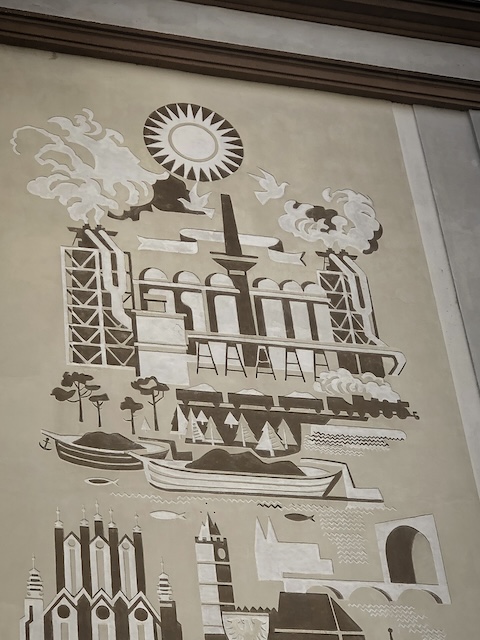
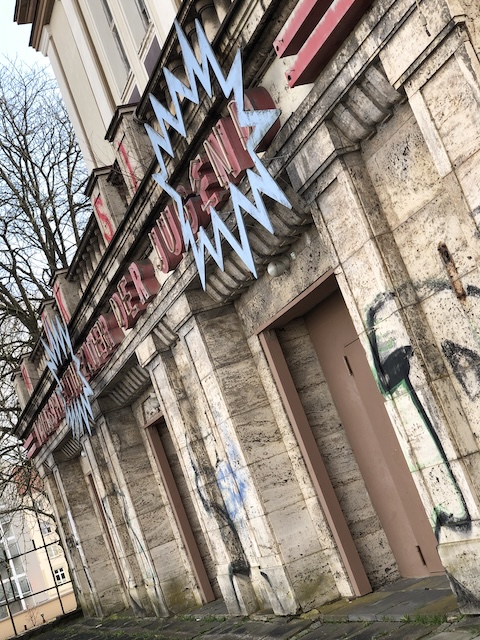
Stahl wurde und wird gebraucht für den Bau und die Instandhaltung eines Landes. Trotzdem steht die Stahlherstellung auch bei ArcelorMittal Eisenhüttenstadt (AMEH) vor einem Umbruch. „Grüner“ soll er werden, der Stahl. Was es damit auf sich hat, was das mit Chemie in Klasse 7 und dem Thema Gase zu tun hat, erklärt dieser Beitrag anhand eines kleinen Experiments detaillierter.
Um den Hochofen gleichmäßig auf hoher Temperatur zu halten, benötigt man große Mengen an Kohle und Gas. Verbrennen diese traditionellen, fossilen Energieträger, setzen sie neben Wärme auch große Mengen an Kohlenstoffdioxid frei. Die Kohlenstoffatome in Gas und Kohle reagieren nur zu gerne mit dem Sauerstoff, der zu 21% in der Luft enthalten ist. Jeweils ein Kohlenstoffatom geht im jedem CO2-Molekül eine chemische Bindung mit je zwei Sauerstoffatomen ein – C[1]O2.
Die Stahlherstellung in ihrer bisherigen Form setzt erhebliche Mengen an Kohlenstoffdioxid frei, ein geruch- und farbloses Treibhausgas, zugleich ein natürlicher Bestandteil der Luft (0,034%). Um den CO2-Ausstoß zu verringern, experimentiert ArcelorMittal mit Direktreduktionsverfahren, Elektrolichtbogenöfen und Eisenschwamm. Die EU hat kürzlich erhebliche Subventionen der Bundesregierung zur Ko-Finanzierung der kostenintensiven Umstellung der Produktionsverfahren und -anlagen genehmigt. Aber das ist noch Zukunftsmusik. Zurück zur Chemie im Hier und Heute.
Wie lässt sich das geruch- und farbloses Treibhausgas Kohlenstoffdioxid überhaupt nachweisen? Kohlenstoffdioxid löscht eine Kerzenflamme – das tut Stickstoff allerdings auch. Der Kerzentrick ist ein Hinweis, aber kein eindeutiger Nachweis von CO2.
Einen eindeutigen Nachweis von Kohlenstoffdioxid liefert uns die Kalkwasserprobe. Bei Kalkwasser handelt es sich um eine klare wässrige Lösung des Calciumhydroxids. Calciumhydroxid bildet mit Kohlenstoffdioxid einen Niederschlag. Mit diesen Informationen und ihrem Vorwissen können die Schüler in Klasse 7 daraus eine einfache Versuchsanordnung ableiten. Sie formulieren idealerweise auch die Erwartung, dass sich die klare Lösung eintrübt und ein weißer Niederschlag bildet.
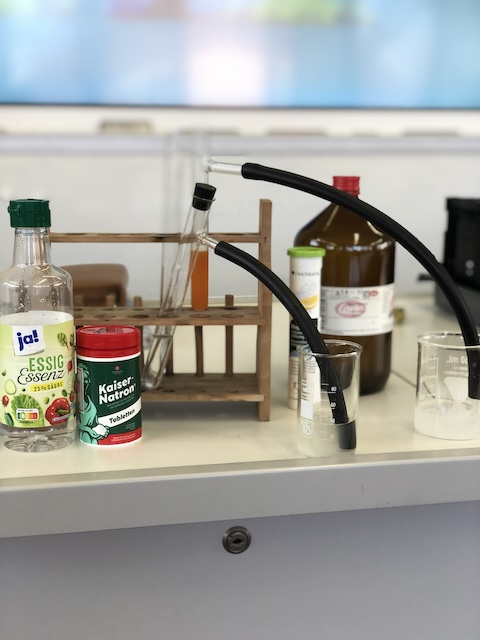
In einem Reagenzglas mit Ansatzrohr und Gummischlauch wird aus 25%-iger-Essigsäure und einer Natrontablette Kohlenstoffdioxid dargestellt. Durch den Schlauch wird das Kohlenstoffdioxid direkt in ein Becherglas mit Kalkwasser (gelöstes Calciumhydroxid) eingeleitet. Und siehe da: kleine Bläschen zeigen erstens an, dass Gasbildung stattfindet. Zweitens trübt sich die klare Lösung nach einiger Zeit wie erwartet ein.
Vertrauen (in den Lehrer) ist gut – Kontrolle ist besser: Das Experiment wird mit einer in Wasser gelösten Brausetablette wiederholt. Erfreulicherweise stellt sich der gleich Effekt ein.
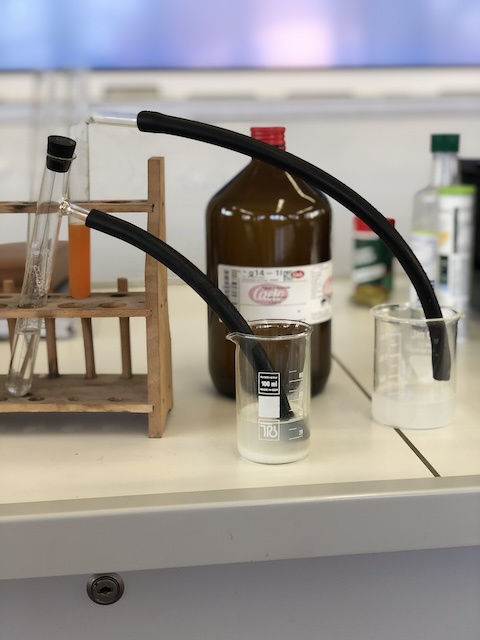
Eine wirkliche Kontrolle bietet die Durchführung des Versuchs mit Helium (He) anstelle von CO2. Das Helium wird aus einem handelsüblichen Gasbehälter direkt eingeleitet – und es passiert im Gegensatz zum CO2-Becherglas nebenan…..
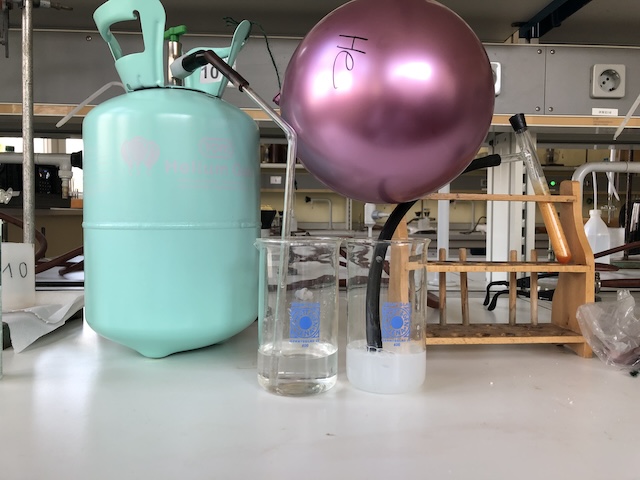
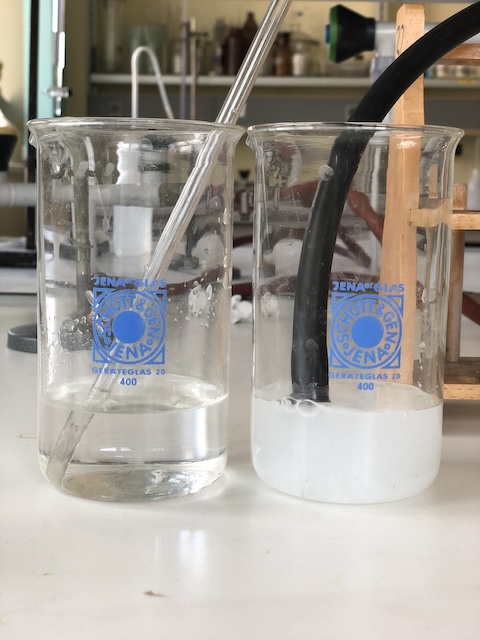
… nichts.

